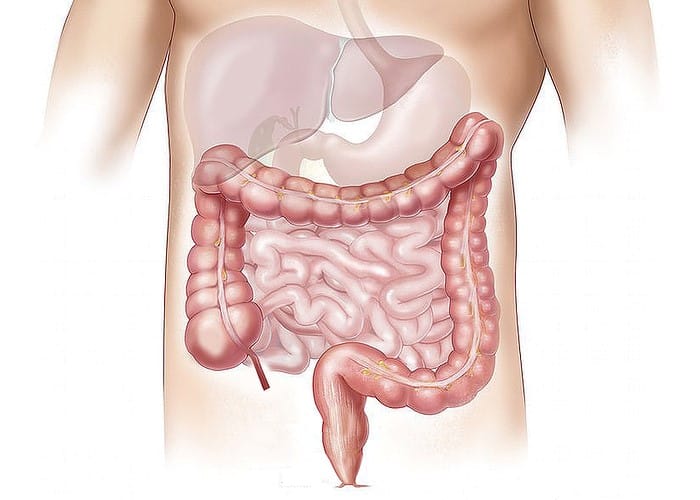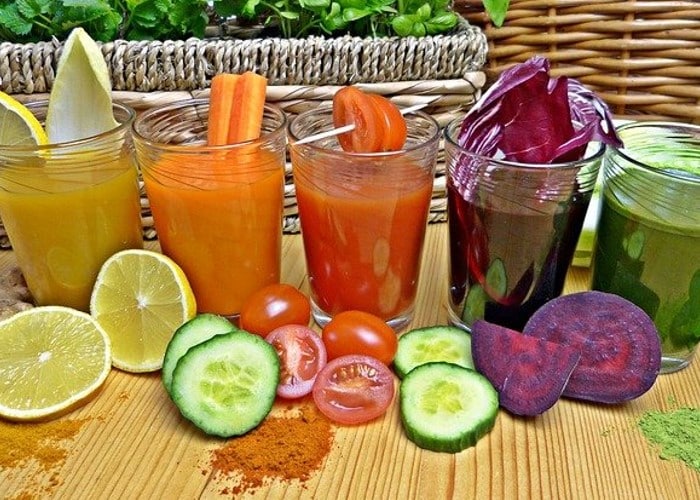
The liquid diet is a very specific diet that has a very clear objective, but that must be followed very strictly so as not to hinder the medical procedure. In addition, an absolute little varied diet can lead to health problems.
The liquid diet has a very clear objective, it also has risks and can also be improved to reach the maximum number of calories allowed, as long as our doctor gives the go-ahead. We will see all this in detail in the following sections.
Throughout this text we are going to tell you everything about the absolute diet to know when to use it, how it is done, what we can eat, what we should not eat, how to improve it and what risks it has. Furthermore, it is important to make it clear that It is not a specific diet to lose weight, since it does not cover all the necessary calories or vitamins and minerals for an average adult, and that in the long term this shortage is quite serious.
What is the absolute diet?
Sre is about a diet, a specific type of food based on only almost transparent liquid food. The idea is that they are easily digested and do not leave undigested residues in the intestinal tract. With transparent we do not mean that it is like water, but that consommés, soups, gelatin, very liquid creams, etc. are also accepted. the question is that you can see through them.
This diet must be prescribed by a doctor for specific tests where it is necessary to have clean and empty intestines. A liquid diet may also be recommended for those suffering from digestive disorders.
In addition, all these meals, which we will detail in another section, must be served at room temperature. Of course, solids or minimally solids such as lumps or lumps are completely prohibited in an absolute diet, since the fundamental objective would not be achieved.

What is the OBJETIVE?
Like everything in this life, there is a clear objective. In the case of this very specific diet, the intention is release the digestive system and leave it without residue so that doctors can intervene with greater security and guarantee of success.
This absolute diet is usually prescribed before a colonoscopy or in case of digestive problems such as diarrhea, nausea, vomiting and the like. In addition, it is also common after some types of surgeries. Let's just say it's a very extreme bland diet, but not everyone can follow it, apart from the fact that it's only recommended for a few days.
how is perfected
There are those who perfect the diet by adding extra protein (45 grams per day) and calories to meet the maximum 1.500 calories that are allowed in this type of diet. There are those who have their maximum at 1.350 kilocalories per day, but that depends on each patient, their needs, age, weight, etc.
- Nonfat powdered milk in drinks.
- Powdered or liquid protein.
- Egg white.
- Instant breakfast powder.
- Preparations for babies
- Extra sugar in drinks and desserts.
- Butter or margarine added to cereals and soups.
Allowed foods
It may seem like a diet with very little variety, but the truth is that there is much more to it than just water, tea and canned soup. In fact, specialists recommend that it be a very varied absolute diet to get as many nutrients as possible.
- Water, at room temperature and can be mineral, from the tap, with gas and even with flavors (artificial or natural).
- Fruit juices without pulp, preferably grape and/or apple juice.
- Isotonic drinks.
- Jellies of any flavor.
- Soft drinks, including CocaCola.
- Tea and coffee.
- Tomato juice or other very liquid and strained vegetables.
- Hard candies that we slowly melt in the mouth.
- Ice creams that we are slowly undoing.
- Honey.
- Smoothie smoothies.
- Butter and margarine.
- Oil.
- Custard.
- Very watery vegetable cream.
- Broths without solids and without excess fat.
- Pureed meats.
- Very runny mashed potatoes.
- Cooked cereal made cream.

Forbidden food
As we have seen, it is clear that it is a diet with some variety despite the drastic avoidance of all solids. Even so, there are foods that may seem suitable to us, but it is not a good idea to include them. It should be remembered that this diet is dictated by a doctor and he does it in a personalized way, however, here we do it in a general way.
- Cooked or raw vegetables.
- Whole fruits.
- Ice creams with solids such as crocantis.
- Cookies.
- Crushed dried fruits.
- Crunchy cereal.
- Desserts that appear to be liquid, but have lumps like rice pudding.
- Chunky vegetable sauces.
- Yogurt with pieces of fruit or cereals.
- Cheese, in any of its usual formats.
- Potatoes, not boiled, not fried, not mashed. Just the puree and liquid with no lumps.
- Avocado, either raw or in creams.
- Melted chocolate.
Main risks
A diet as strict as this one has certain risks, although if we do it well and we are quite healthy, a well-varied absolute diet provides us with enough calories, as well as vitamins and minerals to stay in good condition for a short period of time.
This diet is insufficient if it lasts a long time. It is designed to last only a few days, with 8 being the recommended maximum. It is the doctor who has to recommend it to us, since it is not used as a weight loss diet given its risks of malnutrition.
If we have diabetes, it will be the doctor who does not indicate if we can start this absolute diet or not. In this diet, about 250 grams of carbohydrates are consumed every day, and that can mean some kind of imbalance with blood glucose.
If we do not follow the instructions to the letter, we could put at risk the surgical intervention and even having to repeat the colonoscopy test, for example.
If we already have some type of nutritional deficiency, this type of information should be discussed with the doctor, since it is likely that we will have to take (or continue taking) Supplements. For example, vitamin B12, iron, calcium, vitamin D, among others. It will be the doctor who indicates if the dose of the supplement and the format are changed, since solids must be avoided.